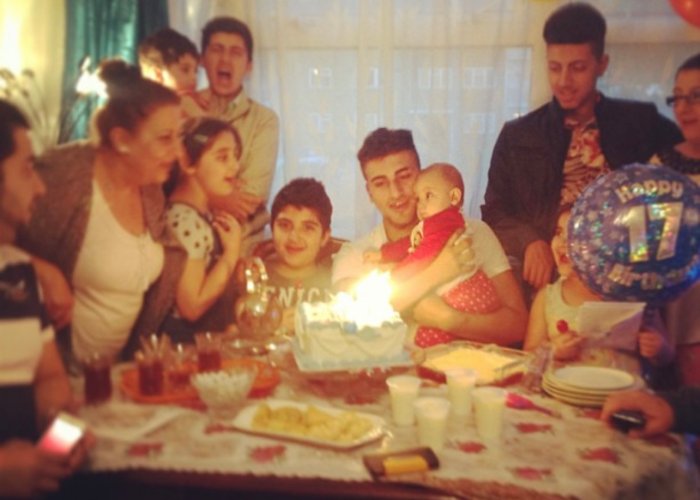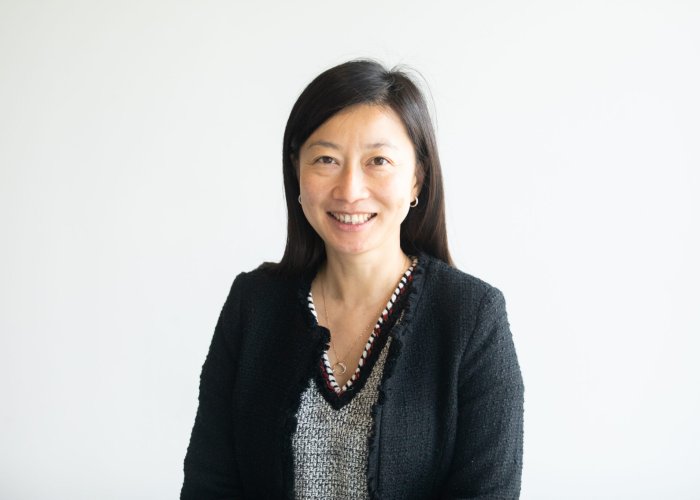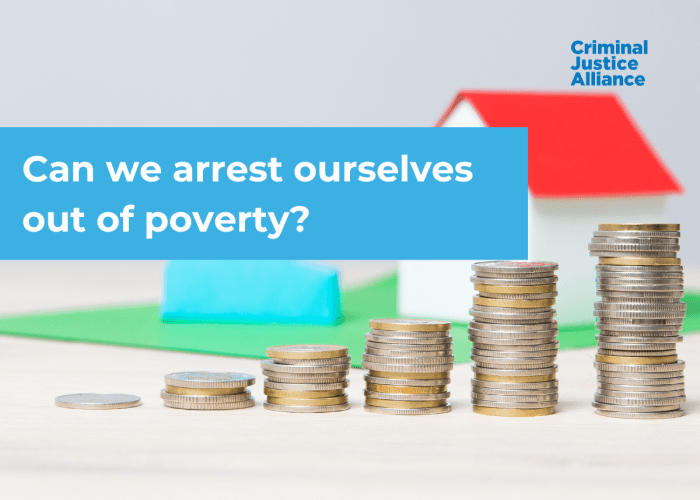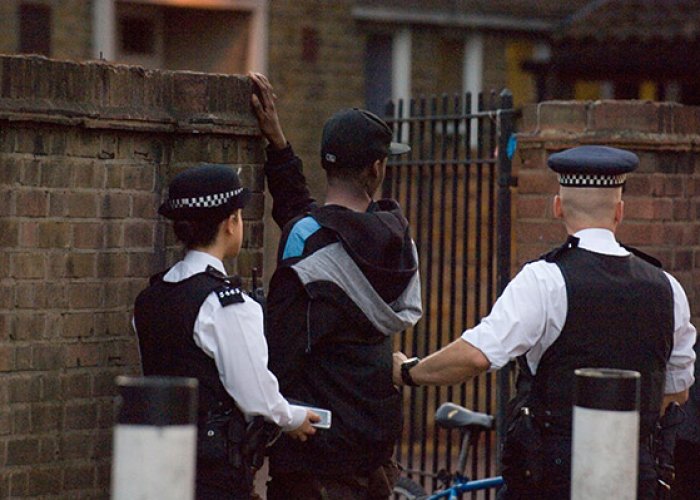To celebrate Restorative Justice Week 2023, we spoke to Julie Clark, the Restorative Service Manager at Calm Mediation, about the rewards and challenges of delivering restorative justice, its role in criminal justice practices, and Calm Mediation’s work more generally.
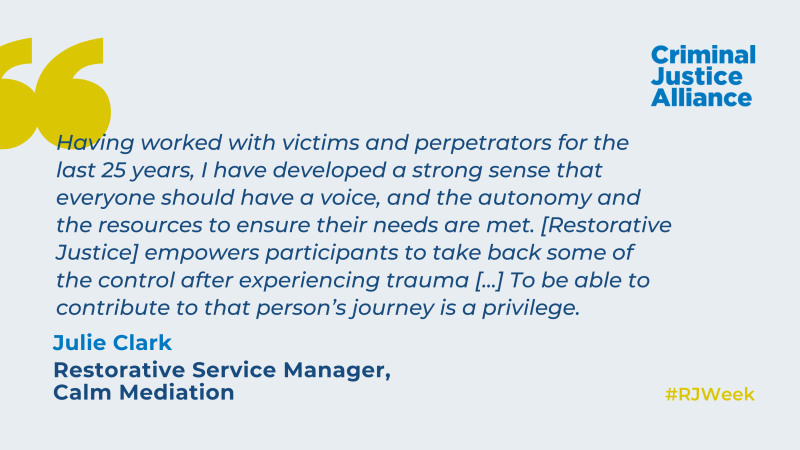
Can you briefly outline what Calm Mediation does, and your role in the organisation?
Calm Mediation is a growing charitable organisation consisting of six services. Currently we are the commissioned Restorative Justice Service for London and we have 5 mediation teams spanning Family, Neighbour, Youth, Community and Workplace. We also offer bespoke training. I joined Calm in April 2019 at the start of the London contract as the RJ Service Manager. The team also have two brilliant Coordinators and a fantastic team of volunteer RJ Facilitators.
For those who might not be familiar with the concept, how would you explain restorative justice (RJ)?
RJ recognises that victims of crime have needs that are not always met by traditional criminal justice processes. A restorative process brings victim and offenders into communication, giving victims a voice to explain the harm that has been caused and to ask any questions they may have about the offence. The process can help victims feel safer and less anxious, enabling them to move forward from their experience of crime. It also enables offenders to understand the personal impact of the harm they have caused and to explore, with the victim, how they might repair some of the harm.
What motivates you to work in RJ, and how do you see its impact?
Having worked with victims and offenders for the last 25 years, I have developed a strong sense that everyone should have a voice, and the autonomy and the resources to ensure their needs are met. RJ empowers participants to take back some of the control after experiencing trauma. Facilitators support participants to identify their needs and find a positive way forward; we see that even in cases where it has not been possible to involve the other party. To be able to contribute to that person’s journey is a privilege.
How is Calm Mediation participating in Restorative Justice Week 2023?
We celebrated RJ a month early this year, with a presentation at the Calm Connect event where we took delegates on a restorative journey from referral to conference, hearing from the referrer, case coordinator, the facilitators and a participant. This week the team will be celebrating our RJ Practitioners by sharing some participant feedback in a social media campaign as well as attending the annual two day Restorative Justice Council conference.
What challenges exist in delivering RJ, and how might they might be overcome to improve accessibility?
I would say the biggest challenge is awareness. Relatively few people know what RJ is and the few times it has been portrayed in mainstream media, it has not been accurately represented. If I had one wish it would be to see an entire campaign dedicated to RJ on prime-time television to show the effectiveness of RJ, the methods, the preparation, the risk assessments and the outcomes – dispelling the myths once and for all.
How do you see the role of RJ evolving in future criminal justice practices?
I don’t think RJ needs to be an integral part of criminal justice practices because we must ensure it remains voluntary. But it needs to be integral to conversations with those who have harmed and those who have been harmed in order offer an holistic approach to meeting needs and reducing crime. I do think we are seeing a culture shift with restorative practice becoming more widespread across our communities. With the advancement of technology, we had forgotten how to talk to one another. Let’s do more of that, because we know that talking works and relationships do matter.
Check out Calm Mediation to learn more about Julie’s work, and keep your eyes peeled for more discussions about RJ with member organisations this week.
